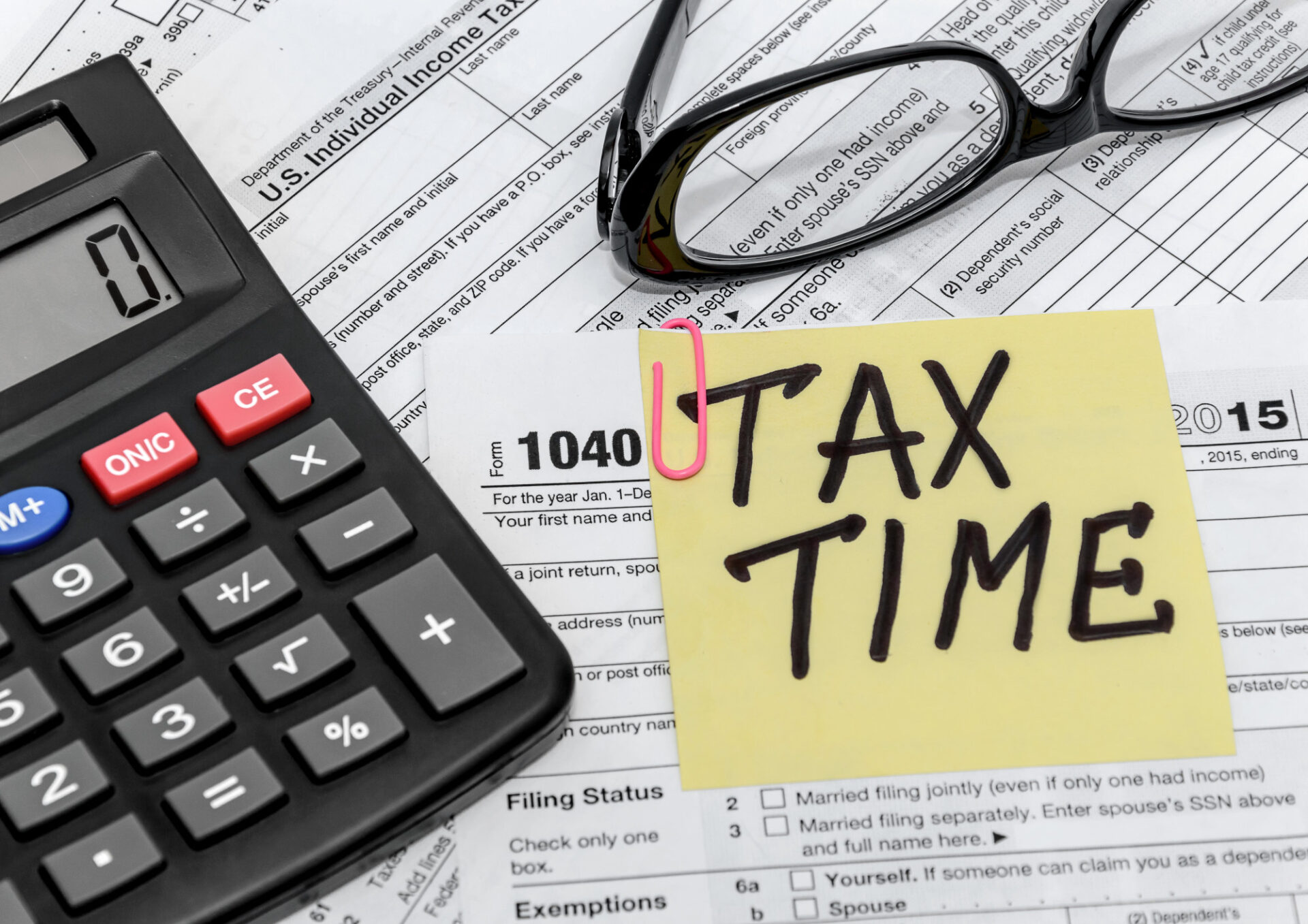
100+ Years of Combined Tax Resolution Experience.
100+ Years of Combined Tax Resolution Experience.
Did you know that a total of 55 corporations paid $0.00 taxes on their profits last year?
While corporation tax differs from cannabis business tax, that doesn’t mean you can’t use tips and tricks to save money. Being strategic and frugal can mean the difference between thriving or failing as a business.
It may seem like there is still a lot of time until tax season arrives, but it will not take long for it to be looming over your head. If you run a business in the cannabis industry, it is always better to prepare ahead of time rather than being underprepared when the time comes.
The Internal Revenue Service (IRS) loves having a field day when it comes to all companies that have anything to do with the marijuana plant. Whether you run a dispensary, growing operation, cannabis-infused product manufacturing plant, marijuana concentrates, or any other business, the IRS will be keeping a close eye on you.
Entrepreneurs running cannabis businesses generate substantial tax revenues for the federal government, but they still have a higher chance of being audited by Uncle Sam than any standard business. When the tax season arrives, there are several aspects of the business that you need to track and be extra vigilant about.
Considering the complicated compliance procedures that cannabis businesses have to navigate and the hectic day-to-day operations, preparing for tax season can be overwhelming. Many cannabis businesses end up paying far more in taxes than they should. We are going to discuss how cannabis businesses can save money this tax season in this post to help you reduce your tax bill.
Table of Contents
Understanding the IRS Code 280E
Before we look at the methods that you can use to reduce your company’s tax bill, we will take a look at IRS Code 280E – the reason taxes can be such a problem for a business like yours. 280E is a federal statute that prohibits companies from deducting business expenses for income associated with trafficking Schedule I or II substances.
While many states have effectively legalized cannabis in some form or the other, the federal government still considers it as a Schedule I substance. Unfortunately, it means that businesses in the industry have a much tougher time navigating their taxes.
The federal statute was created in 1982 by the Reagan administration due to a court case. It saw a convicted cocaine trafficker assert his right under federal tax law to deduct ordinary business expenses. The Reagan administration decided that this was going to become a problem if other drug traffickers began to do the same thing and created 280E to prevent it from happening again.
280E is still in effect and applies to Cannabis businesses even if they comply with state law and are regulated. Most businesses can deduct various things like rent, equipment, electricity, and employee salary expenses on their tax returns. However, cannabis businesses can only deduct expenses directly related to making profits or the cost of goods sold (COGs). It means that cannabis companies end up paying taxes on gross income – pushing tax bills as high as 70%.
Proper tax preparation and documentation can help cannabis businesses avoid such hefty tax bills and innumerable tax penalties.
Ways Cannabis Businesses Can Save Money This Tax Season
Determining your tax liability, finding deductions, and avoiding audits can help your business save money. A company’s tax liability is what it owes the federal government after deductions. Working with the right tax professional can help your cannabis business significantly reduce tax liability when tax season arrives.
Here are some of the most common ways cannabis businesses can save money this tax season.
1. Pay attention to the flood plan
As a cannabis business owner, you should pay more attention to your company’s floor plan. It can help you make sure that you make the right deductions and avoid getting audited by the IRS. Suppose that 60% of your floor plan comprises the sales floor and 40% is the lobby.
Since 60% of your business is directly related to the GOGs, you can deduct 60% of your rent from the tax bill. Deducting 100% of your rent from the tax bill can result in a penalty because there are no cannabis transactions happening in the lobby.
Similar principles apply to utilities and other aspects of the business. Working closely with a tax professional skilled with cannabis-related laws can help you navigate these tricky tax deductions to minimize your tax bill without landing you in trouble with Uncle Sam.
2. Proper employee classification
The IRS keeps payrolls under a microscope, and you need to ensure that you are classifying all your employees accurately, based on the role they play. You must document what each of your employees does for the business. Suppose you have an employee who works part-time as a cultivator and the remainder of the time as a budtender.
The time that the employee spends as a cultivator is deductible, but the time they spend as a budtender is not included in COGs. You need to be careful of how you classify your employees while considering your tax deductions. 280E gets into the nitty-gritty details, and you cannot make any slip-ups.
3. Maintain an impeccable record
To pay less taxes, diligent record-keeping is essential. Act as if you’re going to be audited, as perfect records make the process smoother and cheaper. Clear records help tax experts reconcile accounts efficiently during audits. A freelance firm or in-house tax professional can ensure up-to-date bookkeeping and assist with digitizing documents. Given the complexity of tax code 280E, hire experts knowledgeable in the cannabis industry to save money and grow your business. Over time, a full accounting department may be necessary to stay within tax laws despite complexities.
4. Change Your Business Structure
When it comes to paying less taxes, you could even take measures to alter your business structure and take advantage of a tax loophole.
There are a lot of limits to deductions if you’re business is strictly within the confines of selling cannabis products. This makes it much more expensive to run a cannabis business than other types of businesses. With this in mind, you can increase your deductions by splitting your business in two.
The first ‘half’ of your business would be dedicated to filing taxes on cannabis sales and the sale of any other cannabis-type products. The deduction benefits come into play as you file for the second ‘half of your business.
This business has nothing to do with cannabis in a direct way. Whether you’re selling medical marijuana care services, merchandise like t-shirts and hats, or all the above, you can deduct as much as possible. This even includes property and taxes associated with that.
By claiming all of the traditional deductions that non-cannabis businesses are able to, you’ll be saving a lot of money on your taxes. If you’re worried about the legality of this strategy, all you have to do is look at Champ v. Commissioner. This impressive court case demonstrates that such a move is well within tax law.
This would involve an attachment on the 280E section of your taxes and can be complicated to handle. This is why it’s crucial to have a team of knowledgeable cannabis tax professionals on your side.
5. Deduct Cost of Goods Sold
If you’re still thinking about how to pay less income tax, you must know about the specifics of the IRS tax code 280E. Not only does it forbid tax deductions for the trafficking of illicit drugs, but it also doesn’t allow deductions for the selling of Schedule I and II drugs.
Created in 1981, this tax code came about after a cocaine seller wanted to deduct the cost of his operations as one would a traditional business. It’s an unfortunate fact that cannabis is still classified as Schedule I despite being legal in various states.
Due to 280E, you won’t be able to deduct employee wages, rent, and other traditional expenses, unless you take advantage of the loophole. The good news is that you can still deduct the price of goods sold even without splitting your business in two.
Are you wondering what the cost of goods sold means exactly? To put it in the simplest terms, it refers to the exact costs that come from the production of your goods. As for cannabis businesses, this deduction would include the cost of transporting the cannabis to your locations, as well as the cost of the product.
The IRS is careful when it comes to approving deductions, especially when they fall under the cost of goods sold category. With this in mind, you shouldn’t put any other deductions there unless you want to instigate an audit. If you still get audited and can’t get the situation resolved, tax experts can help take your dispute to a U.S. tax court.
Even if you have to pay liability, a tax team can help you get a refund by submitting a request at the courts.
If you want to learn even more ways you can lower taxes, then it’s best to look into what incentives and breaks are offered within your specific state.
Tax Attorneys to Help Your Marijuana Business in Tax Season
Tax season is not easy for any business. When it comes to running a cannabis-related company, things only get more complicated. Navigating the nuances and complexities of 280E is not easy for many people. Fortunately, you can hire the help of someone who understands all the regulations like the back of their hand. At Polston Tax, we are the tax attorneys to help your marijuana business save money this tax season and avoid issues with the IRS by keeping your business compliant.
Licensed to practice in all 50 states as tax attorneys, we have hundreds of professionals in our firm, specializing in all areas of the tax industry. We’re more than well-equipped to handle your marijuana business’ tax matters and provide you with all the help you need.
Contact us today to get your marijuana business the tax help it needs so you can focus on growing your business without worrying about compliance and tax issues.
More On Cannabis CPA Accounting & Tax Services
- Cannabis CPA Accounting & Tax Services
- Nevada Cannabis CPA Accounting & Tax Services
- Missouri Cannabis CPA Accounting & Tax Services
- A Guide to Cannabis Inventory Valuations
- Cannabis Accountants: How To Choose the Right One
- Can’t Pay Taxes: 4 Options Cannabis Companies Should Know
- Everything You Need to Know About Paying Marijuana Tax
- Save Money: How to Pay Less Taxes on Your Cannabis Business
Additional Readings

The marijuana industry has generated more than $52 billion in sales and is expected to create 330,000 jobs by 2022. This is the best time to be in the marijuana industry, but because it’s so new, there are many potential pitfalls. The biggest potential pitfall is marijuana taxes. There are many marijuana tax issues that...

Did you know that the value of the global marijuana industry is projected to grow to $63 billion by 2024? This growth will lead to an increase in jobs in the industry across the United States, which means the industry is showing no signs of slowing down. If you’ve been thinking about starting a marijuana business, now is a great time to do...

If you strive to own a marijuana business, now is the time to do it. More states are legalizing recreational and medical marijuana use, and the United States marijuana market is projected to reach over $70 billion by 2030. Additionally, more people are supporting marijuana legalization, as 88% of Americans say marijuana should be legal for recreational or medical reasons. Unfortunately,...
As long as the marijuana industry is profiting, marijuana sales can generate $28 billion in tax revenue. Cannabis consumer demand is increasing and more states are open-minded to legalizing marijuana. The extra tax revenue can contribute to education, health, and more. The U.S. cannabis industry is worth billions of dollars and there are many opportunities...

The cannabis industry has exploded in recent years. It’s quickly become the wild west with companies looking to get in on the ground floor of this industry. While the laws around cannabis are changing fast, and there are a lot of financial issues that are murky at best. While many states are legalizing marijuana on...

One of the keys to business success is understanding the tax rules and how they apply to or affect your company. In states where marijuana is legal for medical or recreational use, there are usually special taxes that apply to the sale of the drug. If you’re considering opening a dispensary or own one already,...
